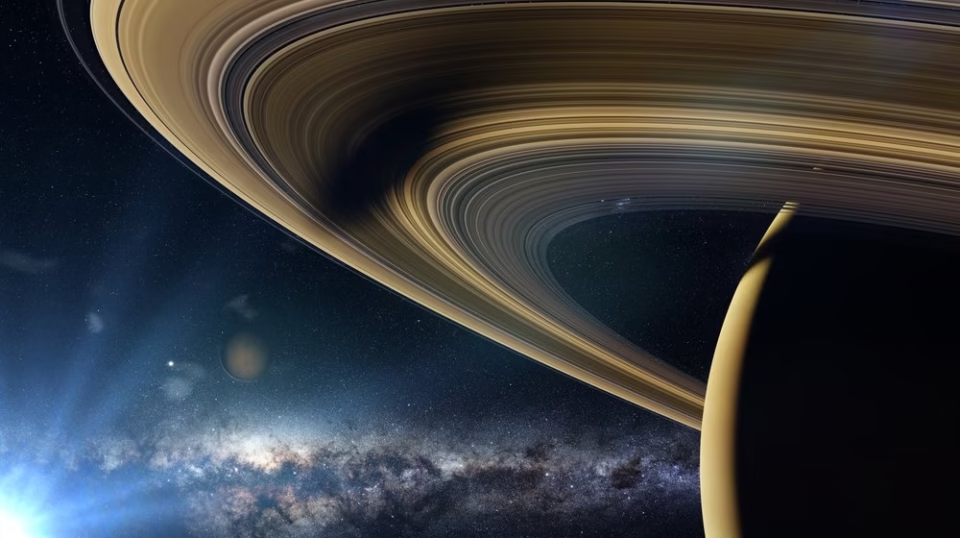Pakistani Scientist Discovers Signs of Life on Saturn’s Moon Enceladus
October 9, 2025 | 1:01 PM
A Pakistan-born German astrobiologist, Dr. Nozair Khawaja, has made a groundbreaking discovery that could change our understanding of life beyond Earth. His latest research suggests the presence of life-supporting organic molecules beneath the icy surface of Enceladus, one of Saturn’s mysterious moons.
Breakthrough Discovery Published in Nature Astronomy
The research, published on October 1 in Nature Astronomy, reveals that Dr. Khawaja and his team at Freie Universität Berlin analyzed data from NASA’s Cassini spacecraft, which orbited Saturn and its moons for over a decade.
The findings show that ice grains ejected from Enceladus’s south polar geysers contain complex organic compounds, including ethers, alkenes, esters, and aromatic molecules — all of which are considered building blocks of life.
“Key Clues About Possible Life”
Dr. Khawaja explained that these molecules include oxygen bridges, carbon bonds, and ring-shaped carbon structures, often seen in prebiotic chemistry — the type of chemistry that leads to the creation of life.
“These compounds are intermediates in chemical reactions that can produce more complex molecules, including those necessary for life,” he said.
“Although they can form without biological processes, their presence gives us valuable clues about Enceladus’s chemical environment.”
Enceladus: A Tiny Moon with Big Potential
Scientists believe that life requires three essential ingredients — liquid water, energy, and organic compounds. Despite being only 505 kilometers wide, Enceladus appears to have all three.
Data from Cassini’s Cosmic Dust Analyzer previously detected phosphates, a key ingredient in the chemical recipe of life — along with carbon, hydrogen, nitrogen, oxygen, and sulfur. The probe also found signs of hydrothermal vents on the moon’s ocean floor, similar to those found on Earth’s seabeds, where microbial life thrives.
Dr. Khawaja emphasized that the samples analyzed were collected minutes after ejection from the moon’s surface, ensuring they were not contaminated or altered by space radiation — a crucial factor in confirming their authenticity.
A Promising Target in the Search for Extraterrestrial Life
While the discovery does not confirm the existence of life, Dr. Khawaja believes Enceladus remains one of the most promising places in our solar system to find it.
“We still don’t know whether life exists there,” he noted, “but the conditions on Enceladus make it one of the best candidates for future exploration.”
From Wazirabad to the Frontiers of Space Science
Born in Wazirabad, Punjab, Dr. Nozair Khawaja completed his Master’s in Astronomy and Space Sciences from Punjab University before earning his PhD in Geosciences from Heidelberg University, Germany. He later joined the Institute of Earth Sciences in Heidelberg, focusing on planetary habitability and extraterrestrial chemistry.
His research continues to inspire scientists worldwide — and places Pakistan on the map of modern space exploration.

